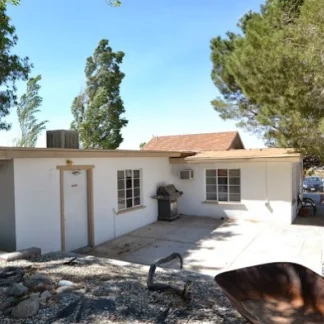Pine Ridge Treatment Center
Lucerne Valley, California, 9401 Crystal Creek Road, 92356
Available Programs
- Adult program
- Program for men
- Program for women
- Young adult program
Insurance and Financial
- Private insurance
- Self-pay options
- Monthly : $9,500
About this Facility
Pine Ridge Treatment Center - Crystal Creek Road offers inpatient and outpatient treatment for individuals with alcohol and/or substance addiction. The program includes education, group counseling, family treatment services and more. Pine Ridge Treatment Center - Crystal Creek Road is located at Lucerne Valley, California.
Contact us for more information: (760) 248-9199

Contact Pine Ridge Treatment Center
Connect with Pine Ridge Treatment Center by calling their admissions team directly.
(760) 248-9199 Website Get Directions